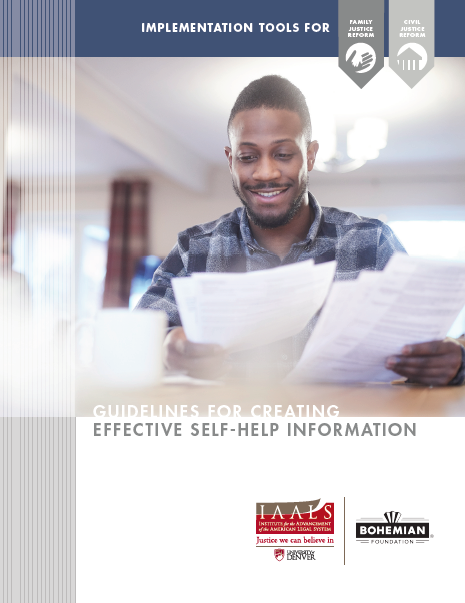Guidelines for Creating Effective Self-Help Information
Self-represented litigants face a variety of challenges navigating the process without legal help. There are widespread efforts by courts around the country to assist self-represented parties, including the development of self-help materials. Not all self-help materials are created equal, though.
The current reality in many jurisdictions is that while there is widespread access to legal self-help information and materials, individuals who need to interact with the legal system without professional legal assistance have difficulty deploying such information. In order to be effectively used by those who need them, self-help materials must acknowledge and address the barriers people encounter trying to use them. Self-help materials must be written in a way that people can process. And, self-help materials must recognize that individuals involved in unfamiliar and intimidating legal proceedings may have difficulty navigating these proceedings because they suffer from a lack of self-agency.
This guide is intended to help courts increase the efficacy of existing self-help materials and assist in the development of new materials that empower parties with information and an understanding of what to do with that information.
These implementation tools were developed by IAALS to support real change on the ground. Each guide is designed to provide the information necessary to help judges, lawyers, court administrators, and others to understand the problems facing our system and the people who use it—and to make improvements that will increase access and bolster public trust and confidence.
This guide stems from IAALS’ work alongside the Conference of Chief Justices, the Conference of State Court Administrators, the National Center for State Courts, and the National Council of Juvenile and Family Court Judges on the Civil Justice Initiative and the Family Justice Initiative.

